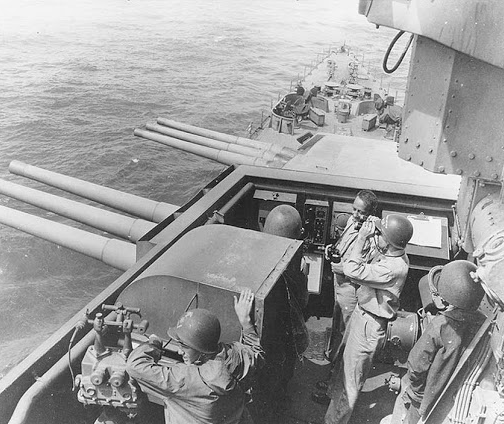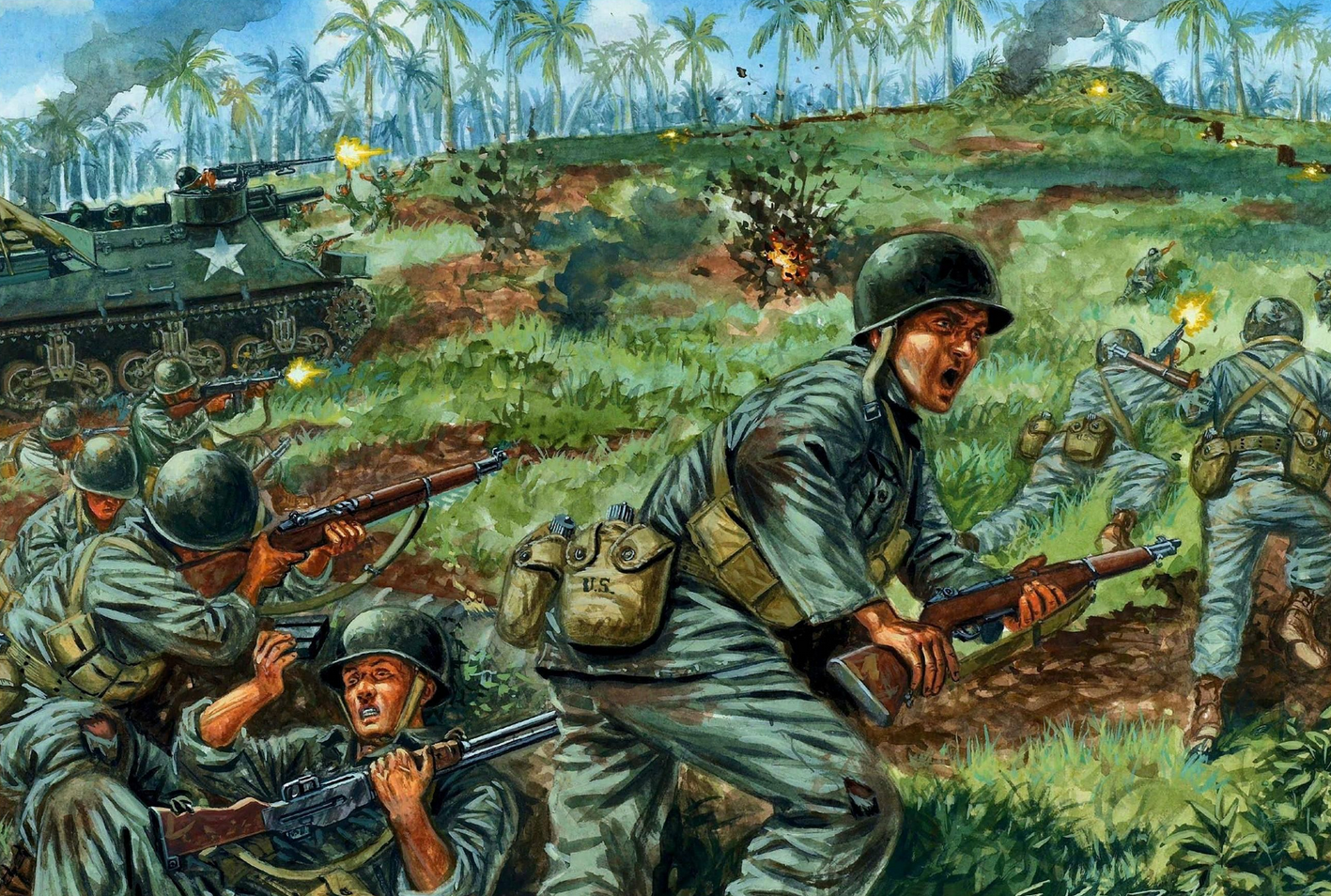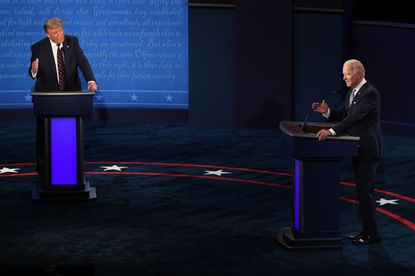Editor’s note: The following Comprises Chapter 3 of Children of Yesterday, by Jan Valtin (published 1946).
(Continued from Chapter 2: Invasion)
_____________________________________________________________
The town of Palo was a secondary objective to Hill 522, the dominating slopes of which rose directly from the river’s edge north of the town.
The enemy had intended to use this bastion as the key of his entire defense system of the Palo beaches. The height rises 522 feet directly out of the coastal flats. It has a roughly circular base approximately 1,000 yards in diameter, with precipitous sides which rise to an abrupt crest resembling a Y-shaped ridge.
The Japanese had impressed the entire male population of Palo for three months to fortify this eminence. It was pocked with bunkers. Communication trenches were seven feet deep and tunnels honeycombed the hill.
The definite extent of the Japanese tunnel system on Hill 522 may never be known. Many of the tunnel mouths were blasted in by our men. We do know that Japanese soldiers kept popping out of the hill-side for days.
(from the Division Record)
________________________________________________________________
Shortly after noon of the invasion day Lieutenant Colonel F. R. Zierath contacted his company commanders. “Gentlemen,” he said, “get ready for the mountain climbing job.” The company commanders were. One of them, Lieutenant Dallas Dick of New Brighton, Pennsylvania, was wounded. Shortly after his company— “Charlie” Company— had hit the beach that morning, its commander had fallen dead at the edge of the embattled coconut grove. Dallas Dick, a quiet-spoken, slender young man with almost Indian features, had assumed command. A Jap bullet had torn through his shoulder. But despite his wound he was determined that he and no one else should lead “Charlie” Company in the assault upon Hill 522. As matters stood, Hill 522 towered nearly a mile behind the Japanese beach defenses.
The Nineteenth Regiment had been stopped by a powerful road block astride the beach road to Palo. The First Battalion could not hope to reach Hill 522 by that direct route. Scouting parties were dispatched to ferret out a back door route to that central rampart which guards the entrance into the strategic Leyte Valley.
The scouts threaded through enemy lines in broad daylight. When they returned they reported that they had found covered roundabout trails leading to Hill 522.

The battalion moved out in battle formation, “Able” Company in the lead. The guns of warships in San Pedro Bay, and field artillery freshly landed on Red Beach opened their thunderous voices in a bombardment of Hill 522. Through the stifling afternoon the cannonade continued without cessation. From the distance the flashes of bursting shells looked like fireflies exploding in a saturnalia of self-destruction. Smoke wallowed over the Y-shaped crest.
“Able” Company had not proceeded far through flat palm lands and swamp when its scouts met sudden fire. Three men were hit. All others struck the ground, sought cover.
The following companies stopped in their tracks, dispatched security patrols to guard the flanks. The fire from ahead increased in ferocity. On a front of one hundred yards there were five Japanese bunkers with walls and roofs of earth and palm logs four feet thick.
Zierath made a prompt decision. He left “Able” Company to engage the enemy. The remainder of the battalion he moved around the foe’s north flank. With “Charlie” Company on the right and “Baker” Company on the left he skirted an expanse of jungle and attacked Hill 522 from the northeast.
Infantrymen moved swiftly up the slope, scouts well in advance and Dallas Dick in the lead of “C” Company’s panting platoons. They climbed over cliffs and pushed through thickets that stung their faces and ripped their sweat-drenched fatigues. They traveled light. Their packs had been discarded on the beach. They carried their weapons, bandoleers of ammunition, their water and a few chocolate bars, no more. On the summit above, artillery still registered with destructive fury.
Hill 522 is very steep. Trails up its sides are winding. Fatigued from a long and hectic day the men looked toward the towering crest and clenched their teeth. At times they pulled themselves up bodily by grasping lianas and overhanging roots.
“This is a job for a guy who’s hung his mother,” a B.A.R. gunner grumbled, shifting his twenty-one-pound weapon from his right shoulder to the left.
Dallas Dick turned around and smiled. “Let me carry that B.A.R. awhile,” he said.
“No,” growled the gunner, “she’s my baby.”
“She’s your baby,” grinned Dallas Dick.
Now chemical mortars hurled smoke shells and demolition charges upon the crest. And then there was a sudden, awesome silence. The barrage had lifted. The assault had reached the upper slopes of Hill 522.
“Speed it up,” said Colonel Zierath.
The word was passed along the desperately toiling squads. Speed it up. It seemed an insane order. Had they not gone as fast as any able-bodied man could go across such infernal terrain? Had they not worked their lungs and hearts to the breaking point?
“Speed it up,” ordered “B” Company’s commander.[1]
“Speed it up,” yelled Dallas Dick.
Speed through these minutes meant all the difference between life and a shallow grave in alien earth.
Japs were no supermen. Too pleasant was the memory of the picture-book farms of Japan, of little women waiting to share again their wooden pillows and their mats with their long-absent men. Zierath and Herman and Dallas Dick were willing to bet ten to one that the barrage had driven the defenders out of their forts to the cover of the far slope. But the artillery barrage had lifted. The task force commanders were willing to bet one hundred to one that at this very moment the foe was racing up the far side of the crest to reman his temporarily abandoned guns.
Speed it up.
Dallas Dick winced under the pain of his shoulder wound. God damn it to hell! Is not the essence of leadership in combat manifest in one’s ability to perform in a superior manner any task one might demand of others? Look at Lieutenant Barrow! He lived by that concept and he died for his pains. An officer and a gentleman: that meant more than the knowledge of which fork to use for shrimp and which for steak. Those who had fallen on the beach that morning were covered with flies and already stinking in the heat. Speed it up
Dallas Dick broke into a forced march pace. He overtook the advance elements. He passed the point and came abreast of the scouts. The scouts gave him a quick, tough look and called upon their second wind and quickened their already murderous pace. No louey nor any other brass should beat them to the crest of that f—— hill!
A wild elation surged through Dallas Dick. He looked at the heaving backs of his scouts, at the sweat-drenched seats of their pants. “Look at those bastards,” he thought. “The power and glory of America.”
They passed the menacing mouths of tunnels half hidden by bamboo thickets. The tunnels were silent. They struggled over the last hundred yards, a ragged and drawn-out column rushing upward through an ominous patchwork of lengthening shadows and austere rock formations. The panorama below them was sweepingly beautiful— the beaches, the purple headlands, a great fleet at anchor, the silvery sea and the distant mountains of Samar. No one gave it a glance.
“Baker” Company attained the first crest of Hill 522 at sunset. It was welcomed with squalls of lead from two cleverly hidden pillboxes away along the ridge. The men sought the ground and waited. The tropical night swooped in and soon it was too dark for the adjustment of artillery fire. Captain Herman ordered: “Dig in. Hang on.”
At this time “Charlie” Company’s scouts and Dallas Dick reached the central crest of the hill. Dick signaled the scouts to halt. He leaped atop a boulder. Outlined against the evening sky he peered down the far side of Hill 522. He saw swarms of bobbing helmets, a mass of bayoneted rifles in the hands of a mob of Japanese. The Japanese were muscling rapidly toward the crest. Dick and his scouts cupped their hands and shouted to their laboring platoons.
“The Japs are coming up the other side!”
In an extravagant orgy of exertion “C” Company’s men rushed to the crest. They attained the top in twos and threes. Dallas Dick dispersed them into a hasty skirmish line. Simultaneously the first rifle shots punctuated the stillness of the oncoming night. The Japs, outraced, broke into wrathful howls. While his men fired from behind rocks, from brush-fringed hollows and from the cover of the wind-twisted trunks of trees, Lieutenant Dick stood upright so that the now swiftly arriving remainder of his company could see him, assigning positions, firing all the while to help slow down the enemy advance.
A Jap came crawling uphill on hands and knees not thirty yards from Dick. Protected by a flat boulder he stopped his bear crawl and sat back on his haunches. He raised his Arisaka rifle and took a deliberate aim. He fired before he died under a bullet from one of “Charlie’s” riflemen. His shot splintered the carbine in the lieutenant’s hand. For an instant Dick stared, surprised. Then he kicked his shattered weapon aside and reached for his pistol.
The Japanese were now within grenade range. Their screaming filled the air. Rifle fire waxed to a crackling storm. Grenades were lobbed in a malevolent close range exchange. All tiredness had slipped from the men; all thought, too, of Hill 522. They fought to live— to them that was the thing that counted. The rataplan of a Jap machine gun from the left cut in with sardonic abruptness.
Dallas Dick moved to the flank to locate the gun. He found the left wing of his skirmish line in battered shape. In a shell crater lay a groaning soldier. A few paces farther lay other men whose blood oozed through their sweat-soaked clothes.
“Where is that gun?” Dick shouted.
A wounded soldier half rose and pointed to the low entrance of a cave. There was another burst: a gun-muzzle spitting fire, a savage ricocheting of bullets striking upon rock. Stragglers, still unaware of the direction of this fire, continued to move into the killing zone.
Dallas Dick shouted: “Hold it, hold it.”
Then a bullet pierced his left ankle.
His teeth were bared under the sudden impact of pain.
“Get off the skyline,” he warned his men.
The machine gun stopped firing for lack of further targets. The torrent of rifle shots and grenade bursts on the crest ebbed gradually. The Japanese drew back. Some fifty of their dead littered the rugged incline.
‘What about that goddam pillbox?” a rough voice asked.
Over the walkie-talkie came Colonel Zierath’s calm voice: “Never mind that pillbox. It’s getting too dark. We’ll get it to morrow. Better dig in. Over.”
“Roger,” said Dallas Dick, and, “Out.”
Descending night made aimed shooting impossible. Also, the muzzle blasts would betray the riflemen’s positions. In the dark a man was better off without a rifle than without grenades. One could throw grenades without giving one’s position away… provided the enemy came close enough for that.
Twice-wounded Dallas Dick refused to be evacuated to the beach. Sulfa powder on his bullet wounds, a good taut bandage around his ankle, sulfa tablets gulped with plenty of water— and water was to become bitterly scarce on Hill 522. “That’ll do,” said the lieutenant. “Dig in.”
“Charlie” Company’s perimeter was set up in proper shape. With darkness all motion ceased. Whatever moved in the dark must be a Jap. The infantrymen had withdrawn a few paces down the slope, dug in to weather whatever the night would bring. On the other side of Hill 522, also a few yards below the crest, the Japs, too, dug in. Below them the Palo River gleamed in the dim light of stars.
While Zierath’s force held the commanding bastion, an other force, much smaller, trod a perilous course through Japanese lines. This group— a handful of aid men— was led by Captain Robert Munch, the surgeon of Zierath’s battalion.
Captain Munch had landed with the assault waves on Red Beach. Amidst the tumultuous congestion of the water’s edge he had tended the flow of wounded men, not counting the hours. During his first brief breathing spell along midafternoon he discovered that his battalion had already struck out toward Hill 522.
Would there be casualties in the fight for the Hill? Munch needed no answer. He summoned his aides and moved forward through the inferno beneath the palms. He was stopped at the edge of a swamp. Enemy snipers and machine gun bullets stopped him. He returned to the beach, his chagrin overshadowed by his determination. Staff officers advised him to spend the night on the beach. They thought it suicide to leave the perimeter at night. The swamps and plantations between the beachhead and Hill 522 teemed with Japs. Besides, the men in the foxholes were wont to blaze away at anyone who moved in the dark.
“My job is with my men,” said Robert Munch.
He went to a radio. He called Hill 522. Colonel Zierath’s radiomen were alert. They answered. Captain Munch requests the battalion commander to send guides down to the beachhead. He wants the guides to conduct him and his medics to Hill 522 via the secret battalion route. Riflemen on the perimeter would be instructed not to fire as the guides come through.
The guides came through: tough youths with blackened faces and eyes that could see in the dark.
When Captain Munch and his party arrived at the base of the hill they found the height surrounded by the enemy. The battalion was cut off. It was to remain cut off through forty-eight hours. For two days the men atop Hill 522 fought off swarms of pugnacious Japs. For two days they went without food. But they did not go without a surgeon. Where neither patrols nor carrying parties could penetrate, Surgeon Munch pushed through. He pushed through with litter squads and relay posts and a perseverance bigger than jagged cliffsides and Jap cunning.[2]
(Continue to Chapter 4: Banzai Night)
_______________________________________
[1] Captain William J. Herman of South Norwalk, Conn.
[2] Major General F. A. Irving, Division Commander, has stated that “if Hill 522 had not been occupied when it was we might have suffered a thousand casualties in the assault.” As it was, the occupation of the height cost the First Battalion, 19th Infantry Regiment, fourteen killed and ninety-five wounded, of which thirty later rejoined their units.









